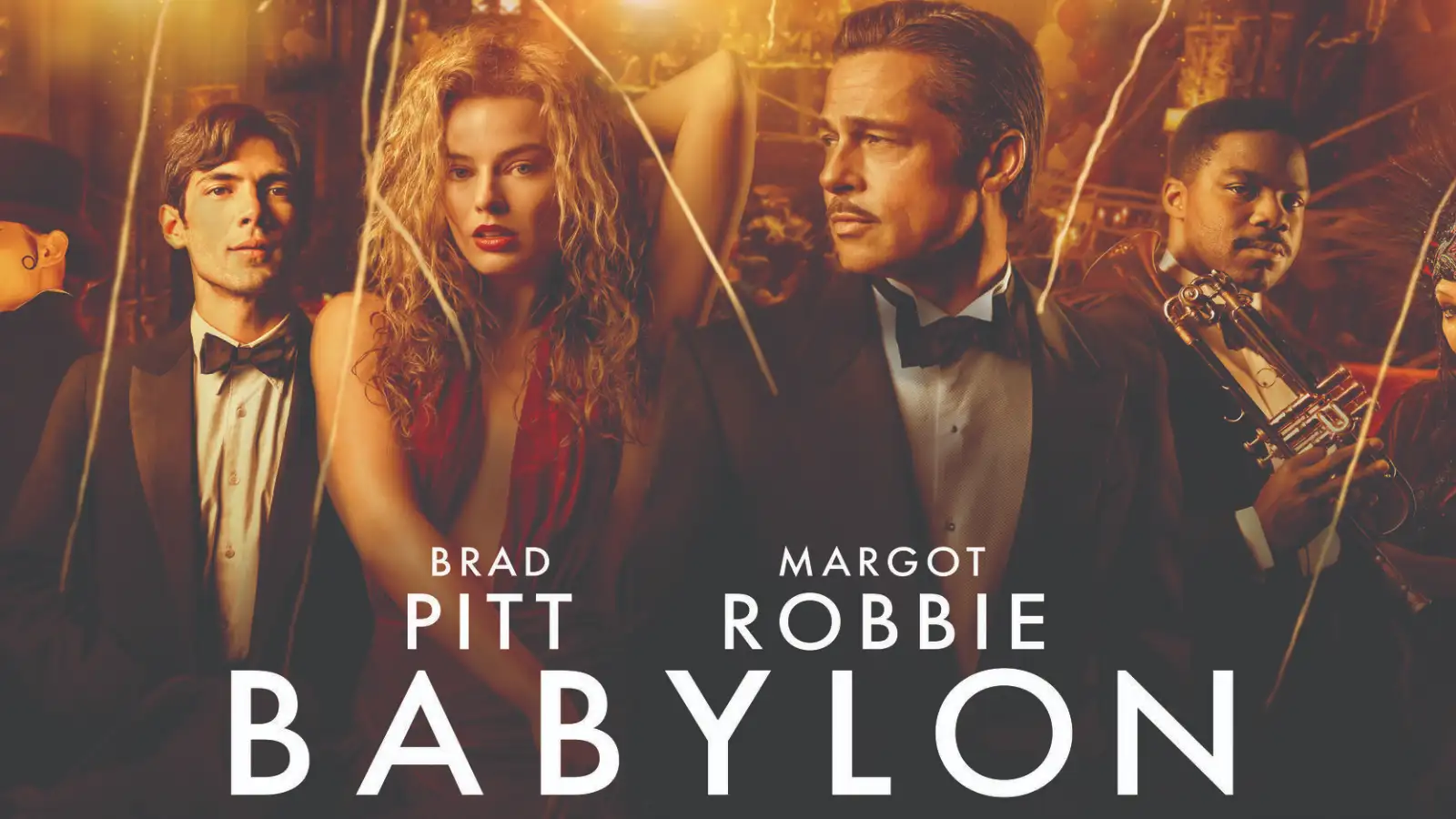The best way to watch Babylon (2022) is with no introduction; however, as you are still reading, you are opting for the second-best way to watch what some might refer to as The Miracle of Birth movie for Hollywood.
The comedy-drama written and directed by Damien Chazelle starts off in 1926 Los Angeles. Silent film rules the screen, and does so with no competition from any other medium. It is here where Manny Torres, played by Diego Calva of Te Prometo Anarquia (2015), struggles to deliver an elephant to Kinescope Studios executive’s Southern California mansion.
Utter mansion-set debauchery dominates the subsequent long-form scenery that would leave some more prudish audience members in revolt. For young Torres, it is a sight of wonder akin to a circus – with unceasing performers and personalities all around. Our other main characters arrive here: Jack Conrad, played by Brad Pitt; and Nellie LaRoy, played by Margot Robbie. Toby Maguire, Phoebe Tonkin, Olivia Wilde, Samara Weaving, Max Minghella, Olivia Hamilton, Spike Jonze and Li Jun Li, among others, also feature in key supporting roles.
The viewer sees Hollywood’s underbelly laid bare as “sex, drugs, and rock n’ roll” (or in this case: sex, drugs and George Gershwin’s Rhapsody in Blue) would barely be enough to garner an invite on a Hollywood party guest list.
Nothing gold can stay, though, and neither did the golden age of immorality in Hollywood, which was quickly replaced by faux, Hayes-coded morality.
Anna May Wong, played by Li Jun Li, was ousted from Hollywood partly due to her job’s obsolescence with the advent of talkies and her sexual tendencies, which studios did not want to be associated with. Jabs are taken at Hollywood’s early acceptance of black performers, with Sidney Palmer, played by Jovan Adepo, having to use shoe polish to look black enough on film just scenes after mingling with the highest echelons of the film industry.
LeRoy, a brash, irreverent girl from New Jersey, could not smoothly make the transition to talkies either, with Conrad also fading from the limelight. While the former had extensive control over her emotional repertoire as a performer, being able to cry on command down to the number of tears a director wanted, she could not escape her less-than-desirable accent and addictions to gambling and partying.
New Hollywood surely has its high life, but one that is more subdued from the public. During the silent era, film sets could be both outdoors, and bonkers. A modern film set requires silence and precision. In being able to caption more of the human experience, film lost some of its humanity.
Film could be understood as a capricious god, picking and choosing winners and losers – dooming those it picked with a success that burns as bright as the sun, while those blocked from the industry are condemned to mortal life. Because that’s what film does, it grants immortality to those lucky or unlucky enough to appear in it.
Without spoiling too much, the end is enough to make the reader wonder what was next, and perhaps what has to die to get us there. Will the generation that can smell an actor’s breath through the screen know the power of a single tear?







